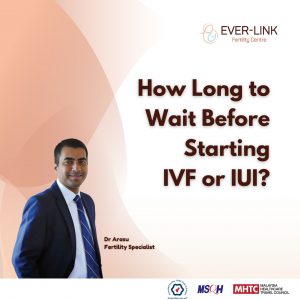
Deciding when to seek fertility treatments like IUI (Intrauterine Insemination) or IVF (In Vitro Fertilization) can be overwhelming. Many couples wonder how long they should keep trying naturally before exploring medical interventions. The answer depends on a combination of age, health factors, and test results.
Age-Based Recommendations
Age plays a significant role in fertility, as egg quantity and quality decline over time. Here’s a general guideline for how long to try naturally before seeking fertility assistance:
- Under 35 – If you’ve been trying for one year without success, consider seeing a fertility specialist.
- 35 to 40 – Since fertility declines more rapidly, seeking medical advice after six months of trying is recommended.
- Over 40 – Fertility decreases significantly after 40, so consulting a specialist as soon as possible is advised if pregnancy hasn’t occurred.
These timelines reflect general trends, but underlying health conditions and test results matter just as much.
When Test Results Suggest Moving Forward Sooner
If you’ve had fertility testing and received results that indicate potential challenges, it may be beneficial to consider IUI or IVF earlier. Here are a few scenarios where waiting too long might not be the best approach:
- Irregular or Absent Ovulation
If tests show that ovulation is inconsistent or absent (often due to conditions like PCOS or thyroid imbalances), fertility medications or assisted treatments may be necessary to help stimulate egg production.
- Low Ovarian Reserve
A low AMH (Anti-Müllerian Hormone) level or a high FSH (Follicle-Stimulating Hormone) level may indicate fewer remaining eggs. In this case, delaying treatment might decrease success rates. IVF may be recommended earlier to maximize chances.
- Blocked Fallopian Tubes
If imaging tests reveal fallopian tube damage or blockage, natural conception is unlikely, making IVF the best option since it bypasses the tubes entirely.
- Male Factor Infertility
If a semen analysis shows low sperm count, poor motility, or abnormal shape, IUI or IVF with sperm selection techniques may improve pregnancy chances rather than waiting to conceive naturally.
- Unexplained Infertility
If standard tests don’t provide a clear answer but pregnancy still isn’t happening, IUI may be suggested as a next step before considering IVF. This option increases the chances by placing sperm directly into the uterus during the most fertile window.
Taking the Next Steps
If fertility treatments are needed, the approach will depend on individual test results and personal circumstances:
- IUI – Typically suggested for mild male infertility, unexplained infertility, or ovulation challenges.
- IVF – Recommended when natural conception or IUI isn’t likely to succeed due to egg quality, ovarian reserve, or tubal issues.
Deciding when to start treatment is personal, but waiting too long in certain situations may lower success rates. Seeking expert guidance, discussing your results, and making an informed choice is the best way forward. Fertility is a journey with twists and turns, but having the right knowledge can help you make decisions with confidence.

